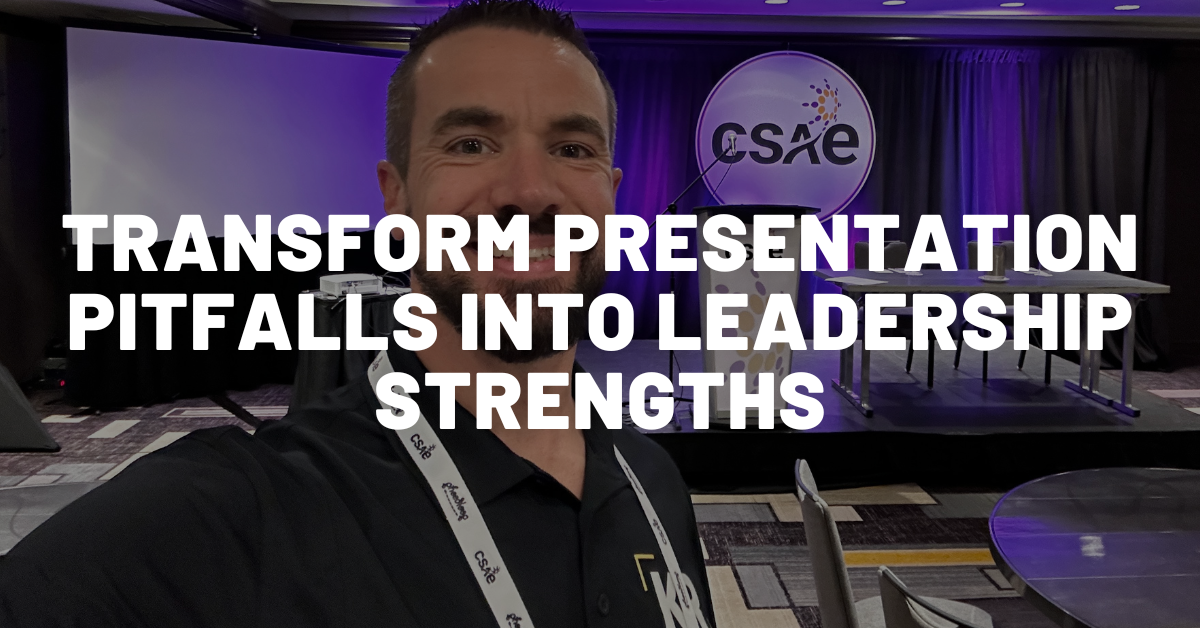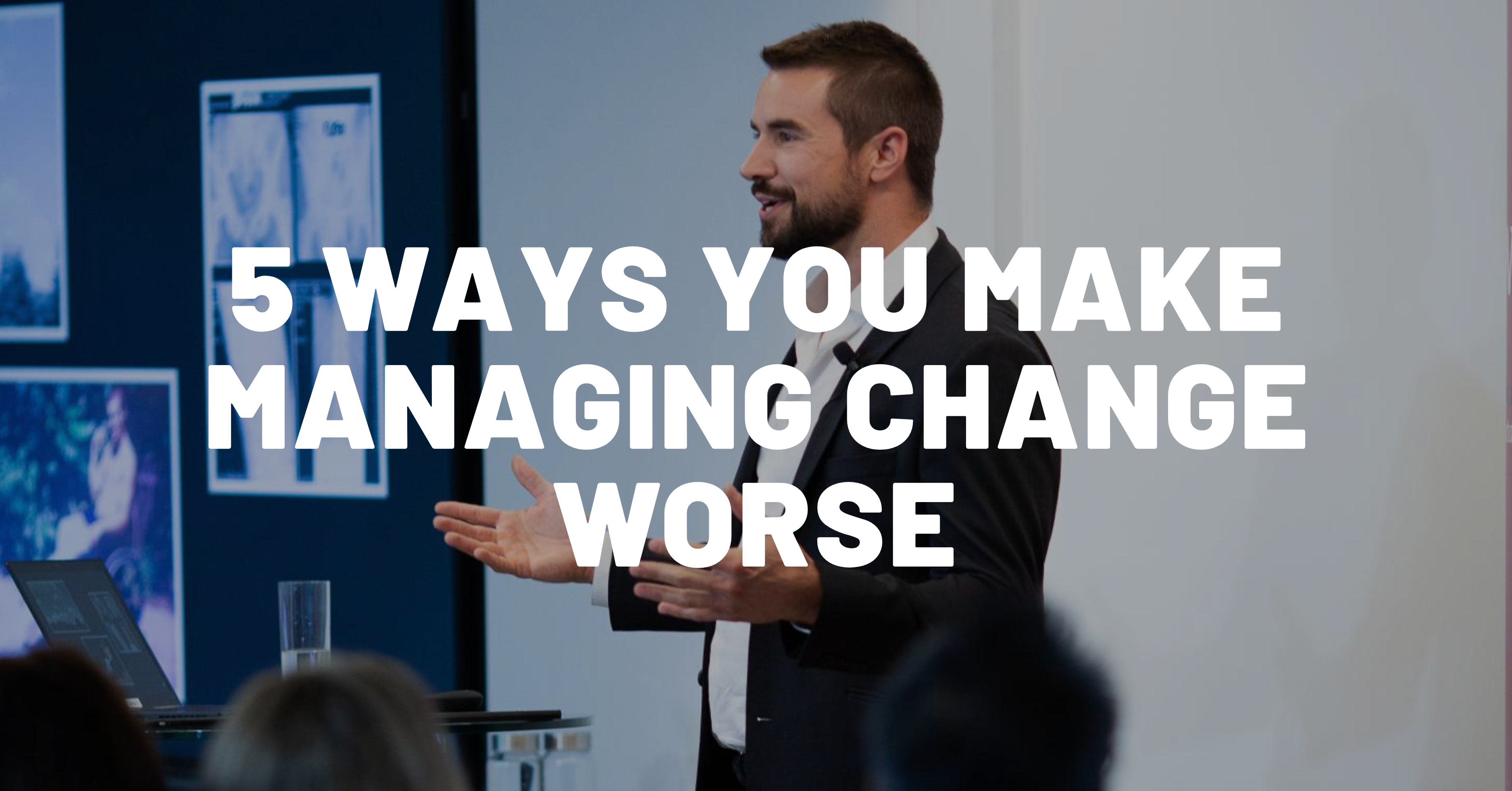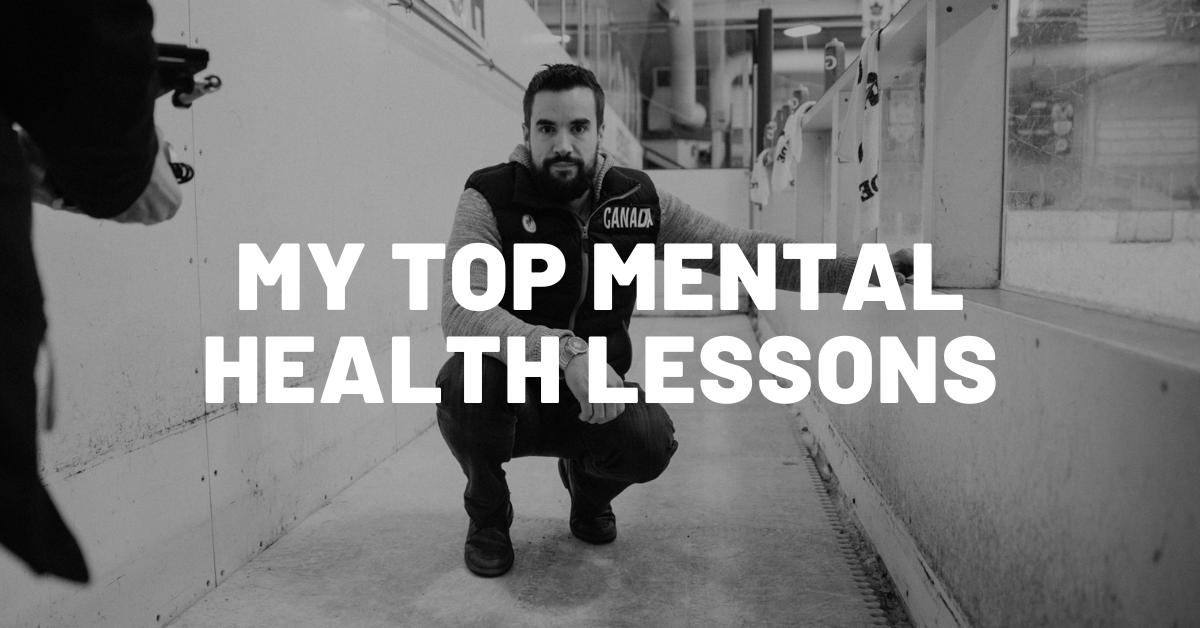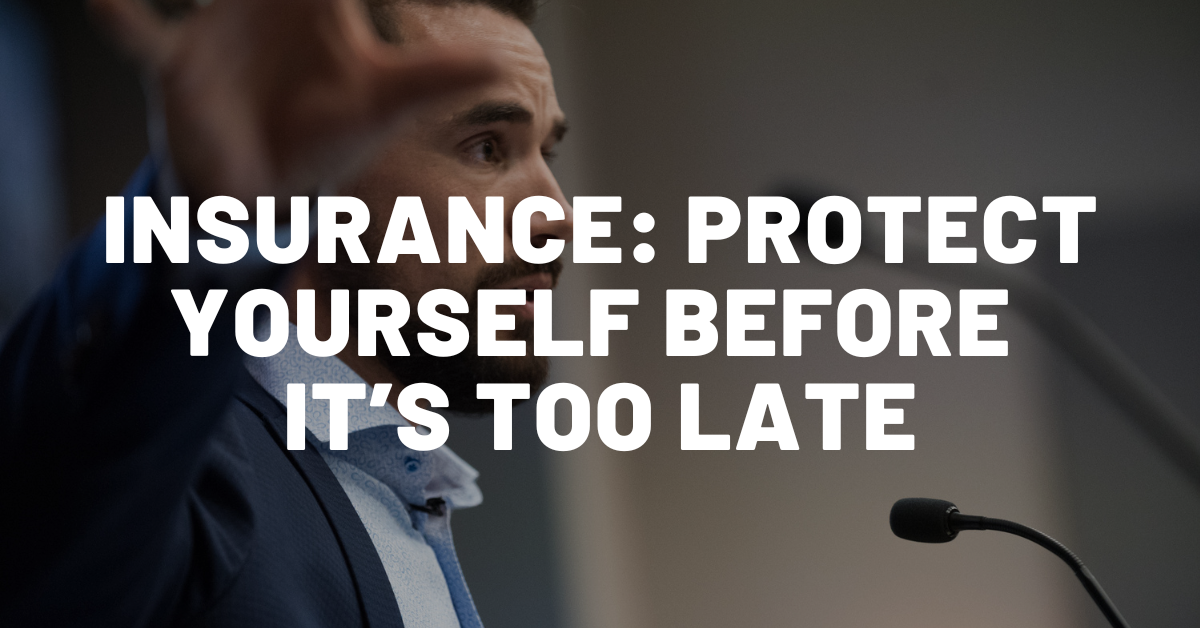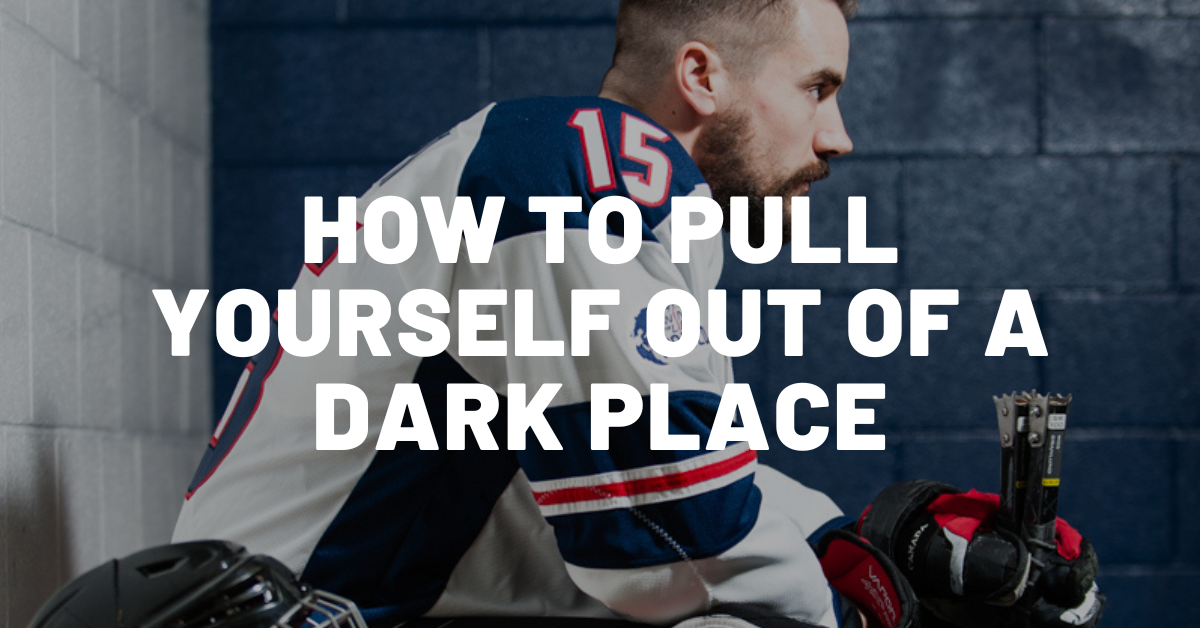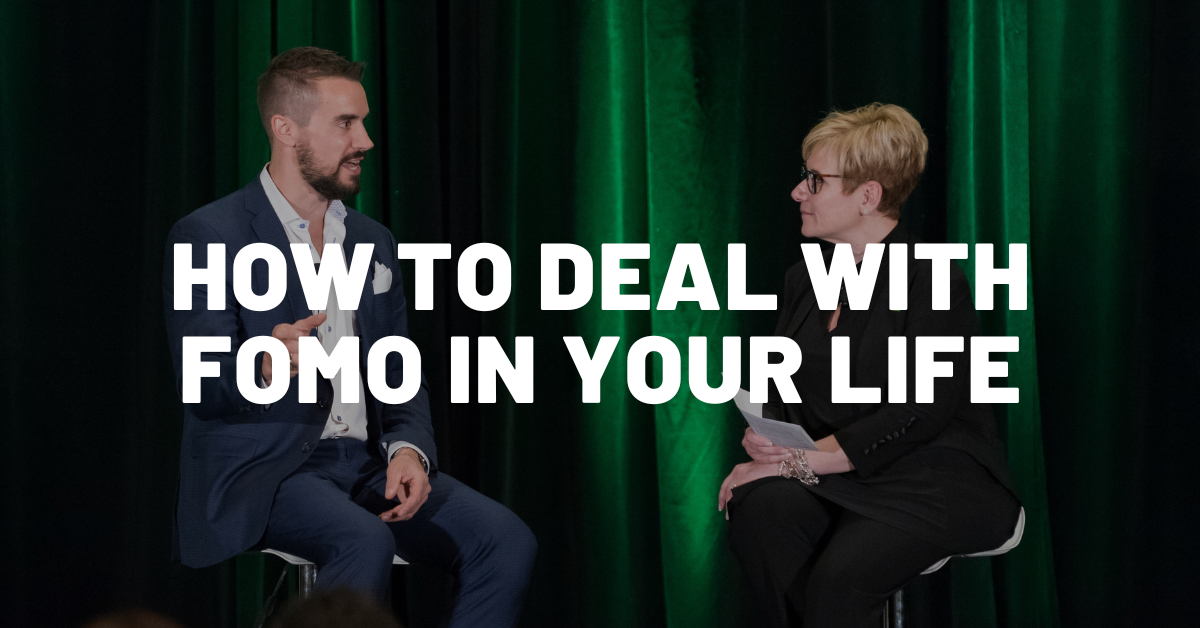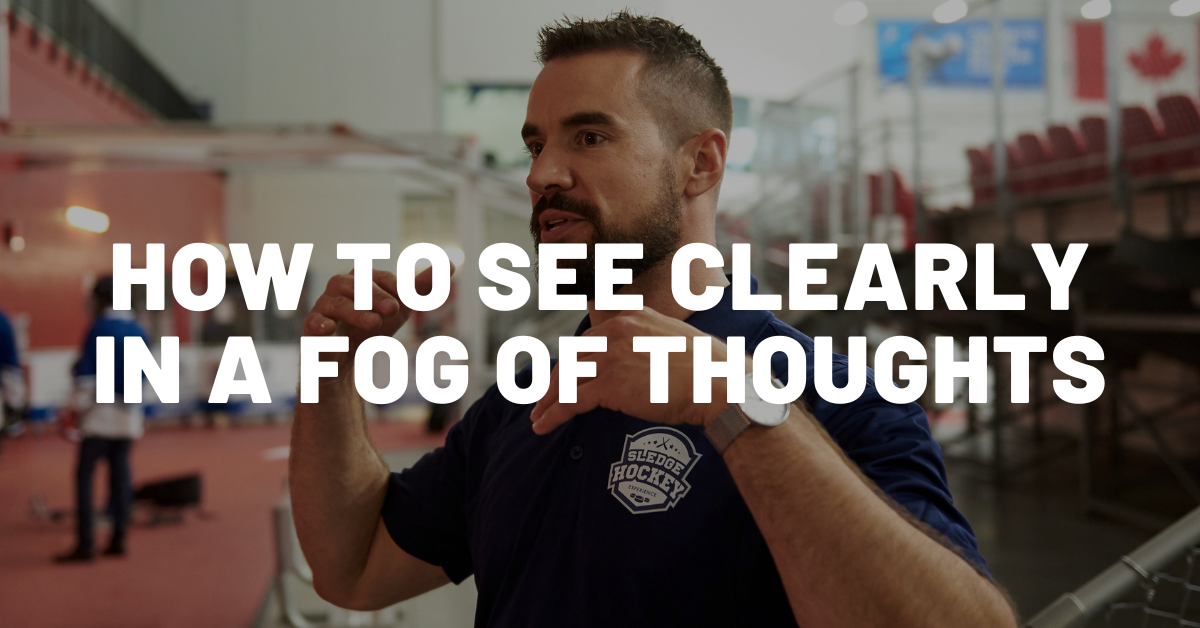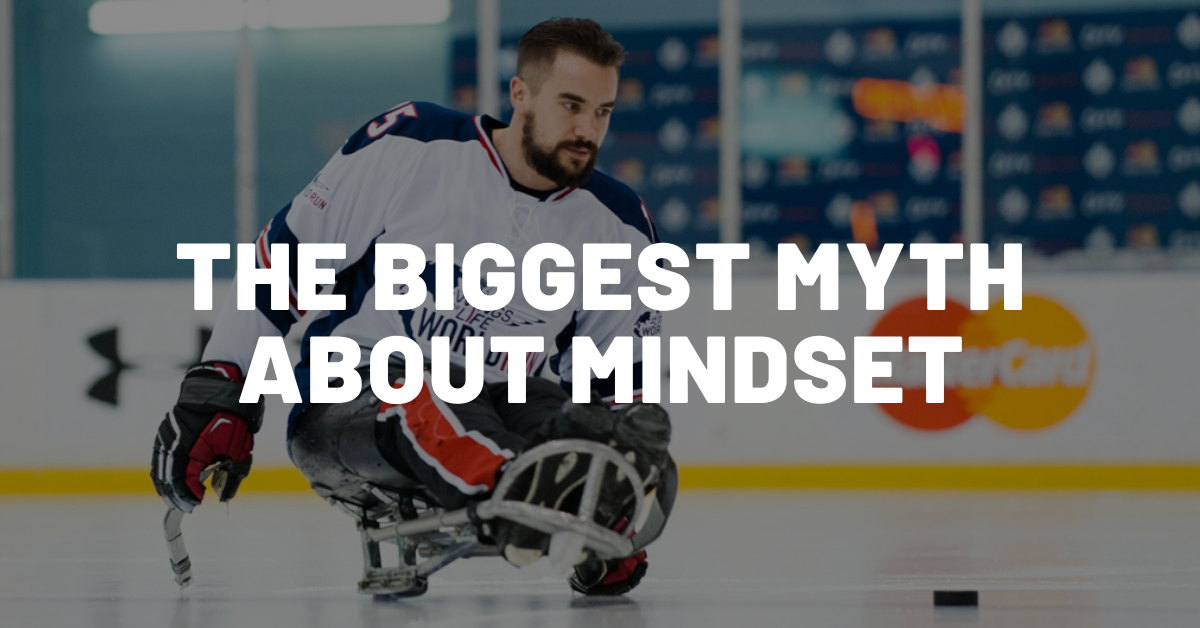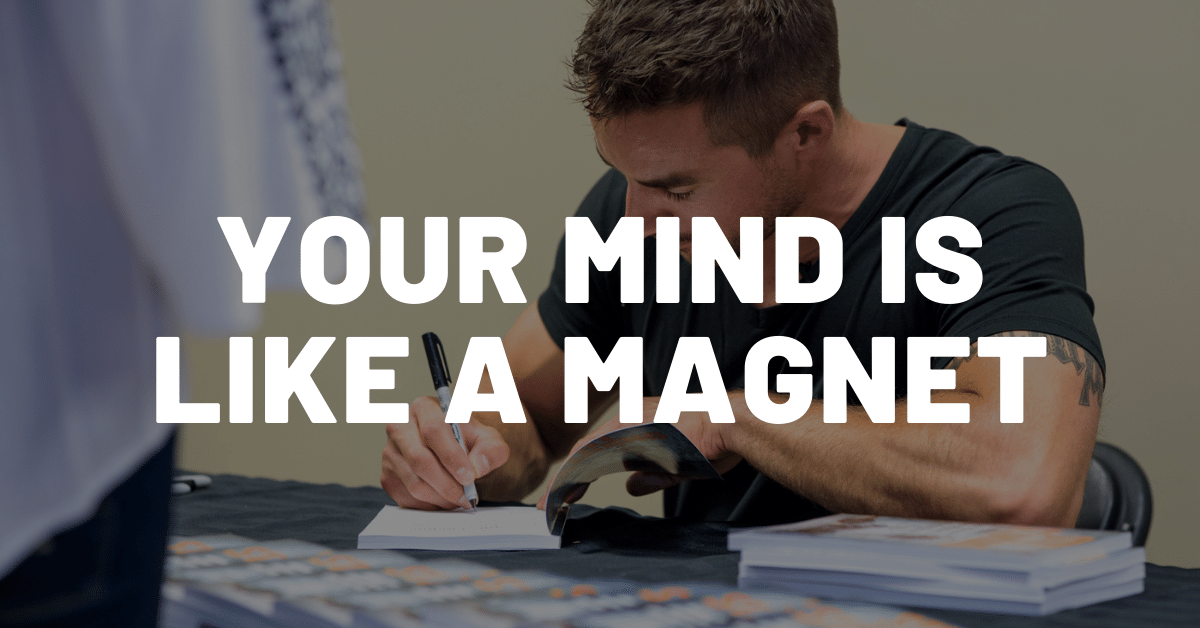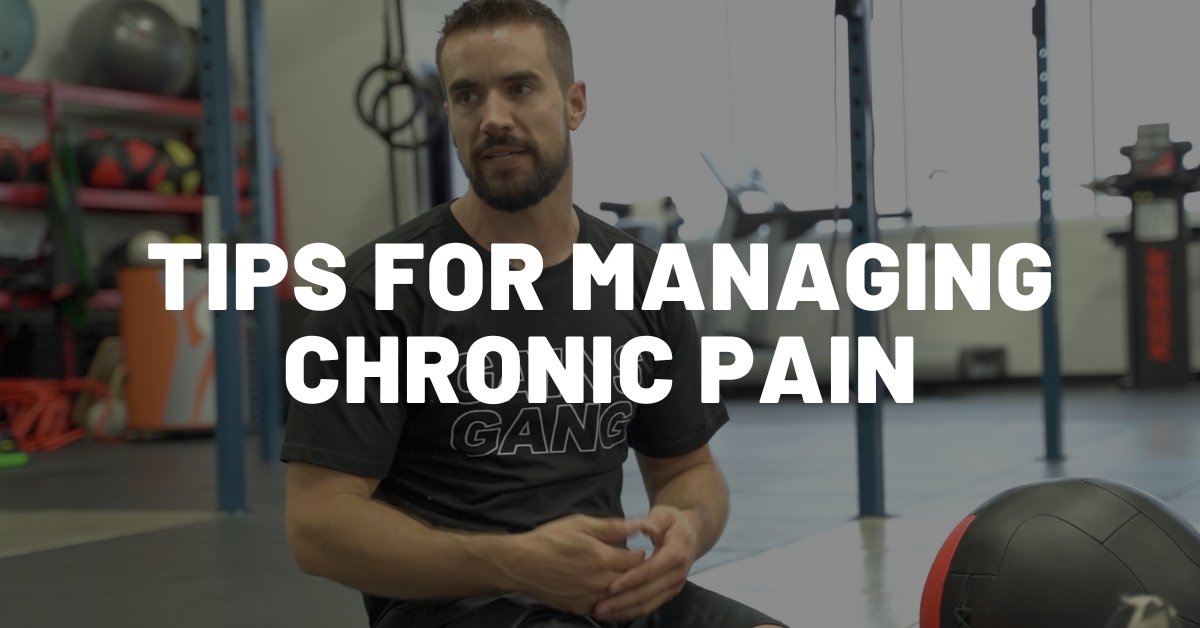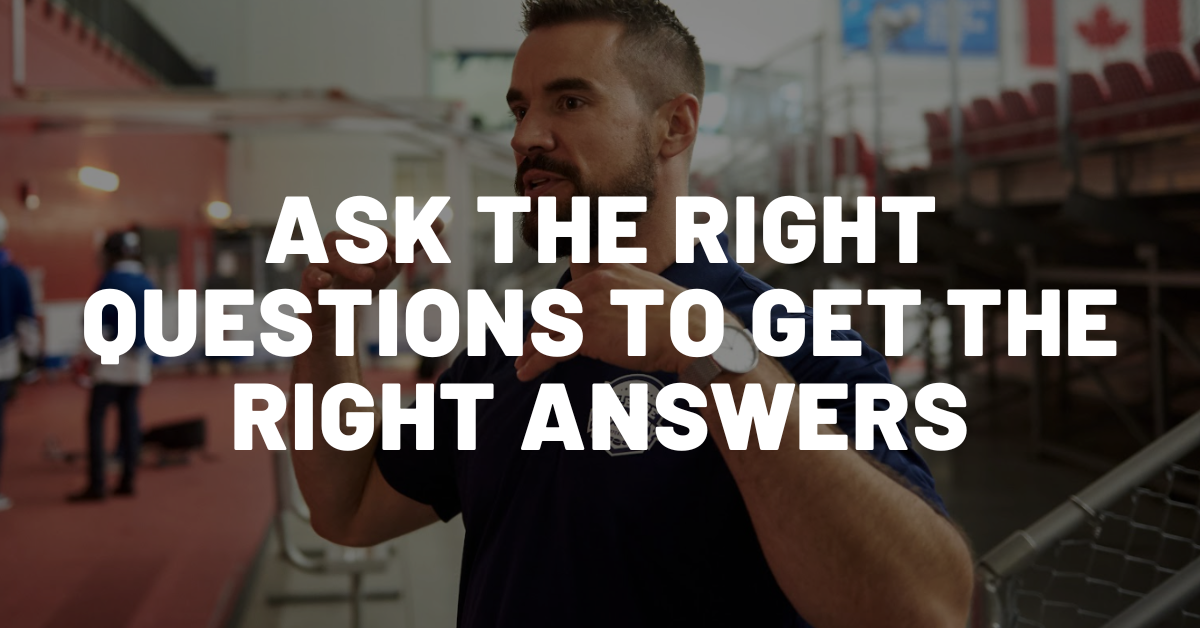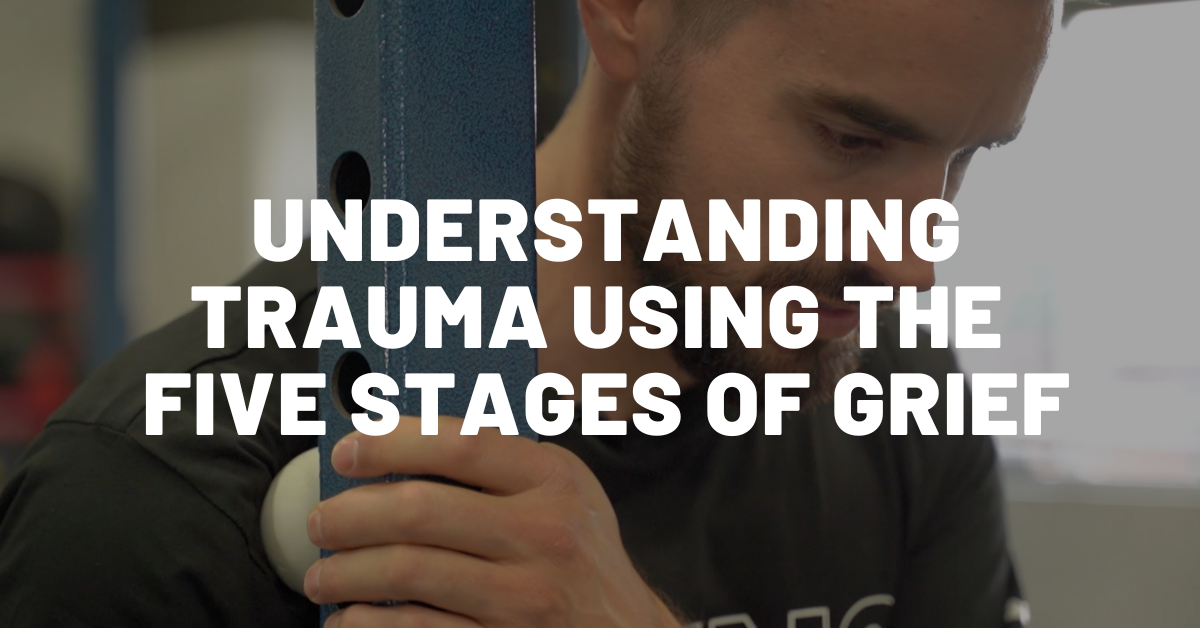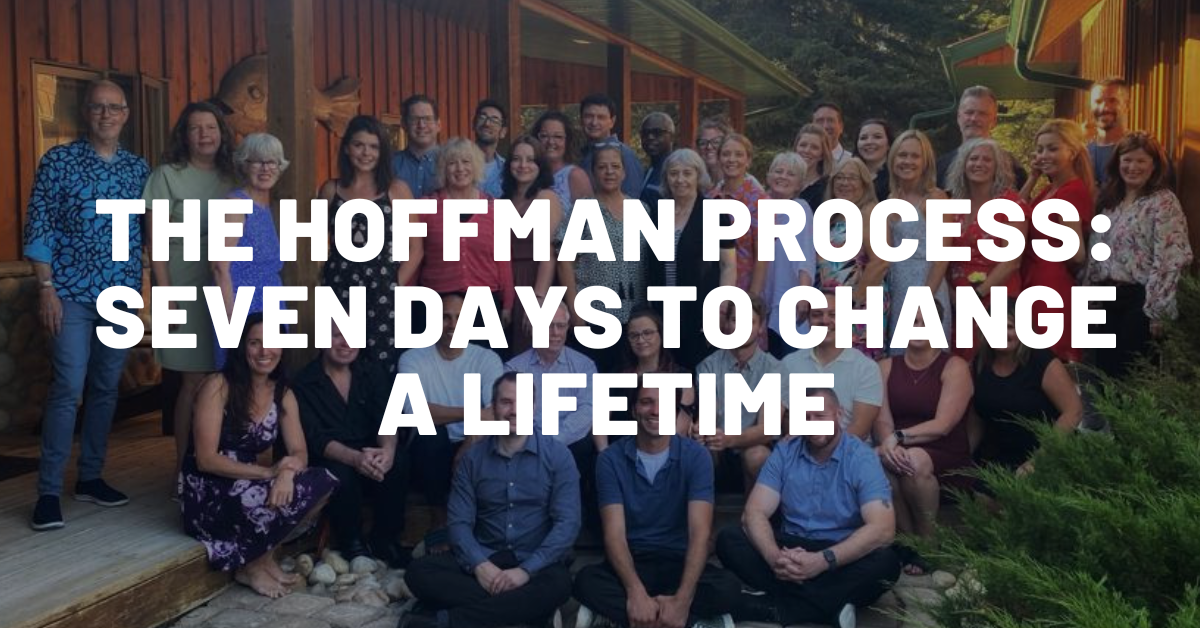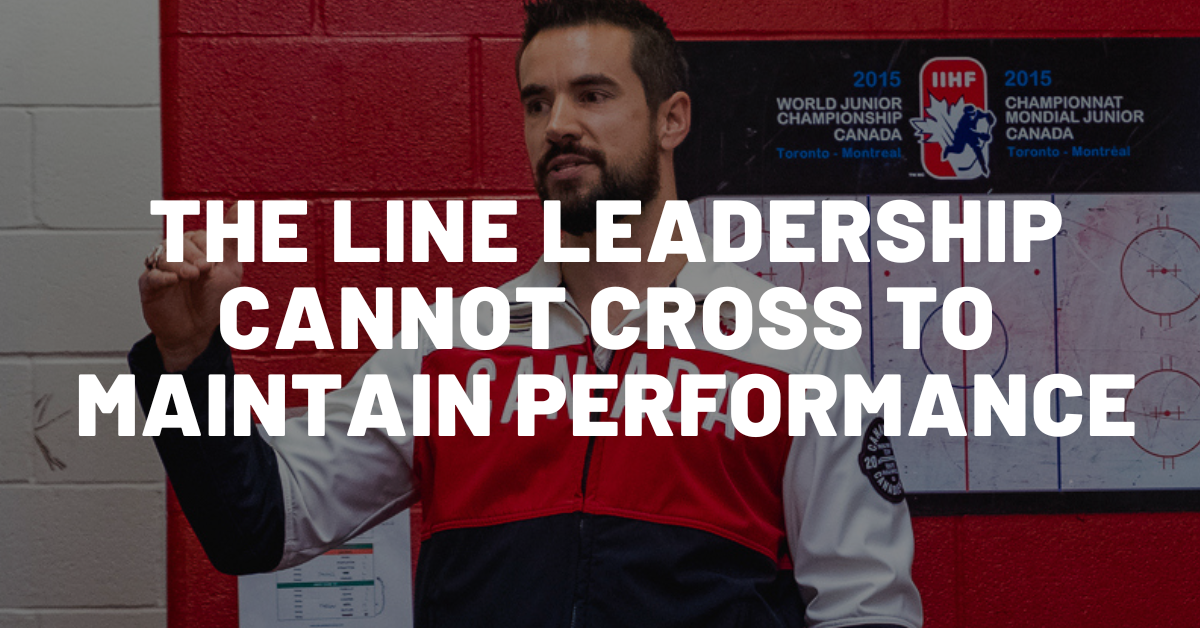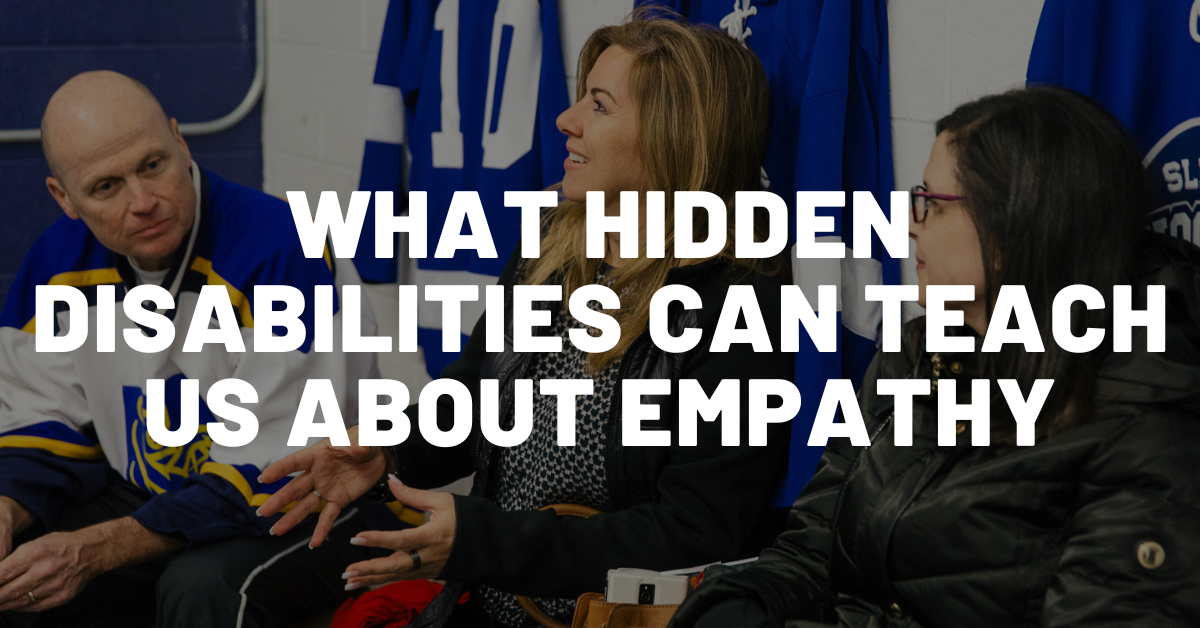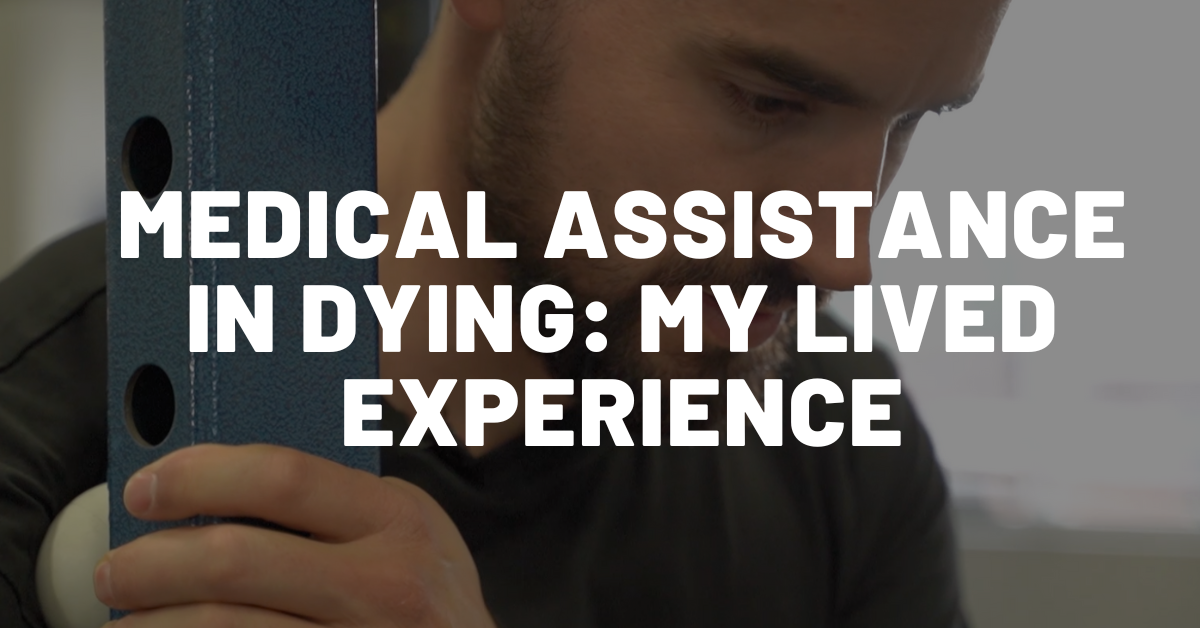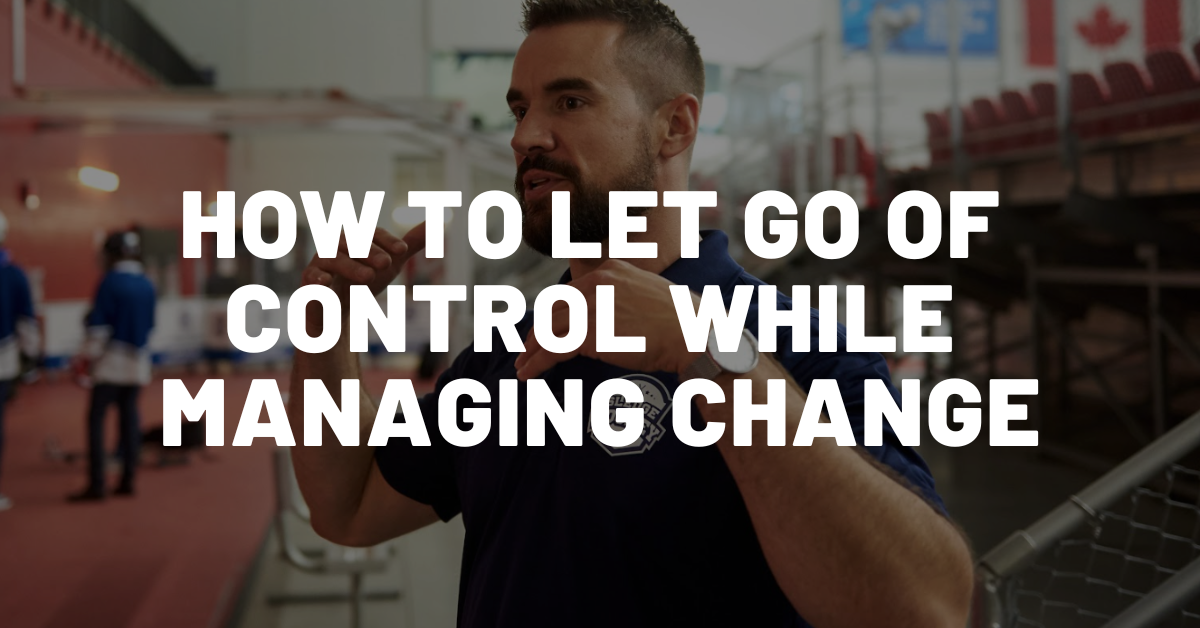After being suicidal on three occasions, I started to reflect on not only why I fell in to depression, but most importantly how I got out of depression.
Particularly, as I went through the Post Olympic Crash it became evident to me what I had done, and this is my first hand description on exactly where I went wrong.
I was once a very successful, driven, healthy athlete who literally was in the best shape I had been in my entire life. I had routines for everything, I was disciplined, always got my eight hours of sleep. Then, all of a sudden one day, I found myself in the emergency psychiatric ward at St. Joseph’s Hospital in Hamilton, Ontario.
When people hear this, they usually ask me a two questions. The first question is “What happened?”. The second question is “How did you turn it around?”.
I literally answer, “I went out and bought groceries.”
Wait? What?
You went out and bought groceries???
Yup. I bought groceries.
I’m telling you this because this is literally what happened.
When I look back on why I spiralled downward after the Paralympic Games, it was evident. These are the things I did wrong.
1. I stopped eating right. “What was there to train for now?”, I asked myself.
2. I stopped exercising because when I was in peak physical condition, I could do nothing for quite a long time and still look great!)
3. I started drinking more aka “celebrating”. Lots of celebrating.
4. I stayed up late often to 2am, either out on the town or on my computer.
5. I began isolating myself slowly. As I became more depressed, I didn’t see myself doing this, but I didn’t want to be around people. Soon no one was calling because I pushed them all away.
6. I had no goals. I didn’t work on any other goals than the Paralympics while I was an athlete, so when I was done in Sochi, I had no motivation to get serious about life after sport. Nothing excited me.
7. I stopped earning money. There were a few speaking opportunities after the Games, but they were minimal, and the rush of the Games dies out fast. I was also losing interest to be on stage. I enjoyed speaking about what I was pursuing vs what I did. I never saw that coming.
8. I was alone.I was not in a serious relationship prior to going to the games, and what I had was now gone.
My head was a mess.
In my previous article I wrote about the moment when I experienced the teenage boy who was cutting himself freak out in the emergency psychiatric ward, and that was the moment that I snapped out of my mental funk.
The question was how.
I looked at all the things I was doing that I knew were not healthy for me and saw how they were contributed to being in such a bad place mentally.
As we left the hospital, I started asking myself “How can I reverse this process?”.
For me, it literally came down to the mentality of “Spiral Up, Not Down”.
So, what does that mean and what did I do?
The first things was I was scared to spend the night alone, so my mom stayed over on my couch that night and our game plan the next day was to go buy groceries.
Why?
Because I figured that even if I don’t have the motivation to get to the gym right away, I know that if I can eat healthy, chances are that I will start to feel at least 5% — 10% better, and that will cognitively help me make better decisions and feel better about one day soon making it to the gym.
So here is exactly what I did.
1. I bought groceries. I was eating like shit. I knew that if I could get some better nutrition back in to my system that I could begin feeling a little bit clearer again.
2. I called my personal trainer and set up some new appointments. I needed to be accountable to someone to discipline myself to the gym. When you are suicidal you will say things to yourself like “No amount of money is worth this, and I would pay almost anything not to feel this way.” Well, I figured $500 a month for a personal trainer was worth not wanting to die and that I’ll figure out how to make the money back once I’m feeling well. Sound good?
3. I stopped drinking. Drinking is a depressant, and although I would feel good for maybe a few hours, it pretty much had a 100% guarantee that I would feel worse about myself the next day. So, the odds were heavy in my favour to quit.
4. I started going to bed earlier. Now this is definitely hard! The first thing to do is say “No” more often to activities that will keep you up late. The second thing is to discipline yourself to actually GO TO BED around 11pm, even if it takes you an hour or more to fall asleep. The simple act of being in bed with the lights off and your phone off help condition your body to pass out before midnight.
5. I called my friends and asked for some help, and when I asked for help, I was clear. Remember these three words — say, “I need help”. Don’t beat around the bush. It’s not “Hey, what’s up!” when you are depressed and need help. Simply say “I need help”, and then continue the conversation.
6. I set some goals. Number one was rejoining the hockey team. I had to get myself back in shape to play again. Our season started super late that year, so it worked a bit in my favour.
Number two was I moved to Toronto. I don’t believe in running away from your problems, but I felt like Toronto had been calling my name, so I said to myself “Take the leap.”, and it’s been fantastic ever since.
7. I didn’t earn more money. Honest. I wasn’t ready to get back on stage to speak. Rejoining the hockey team helped me get some cash back into my bank account and fortunately that was enough for me to scrape by through the next year until I was cut from the team.
8. New city, new people. That was enough for me. I didn’t feel alone. I actually preferred it.
These were the steps I took to turn things around when I was at my worst. I looked at these things and saw my way out of depression by asking myself “How can I spiral up, instead of down?” and began to tackle those areas of my life I struggled with.
I briefly took antidepressants for 3–4 days but could not stand trying to get on them. I said to myself “I can do this.” and committed myself to finding a way without medication.
This concept is essentially Cognitive Behavioural Therapy and is not for everyone, but if you can develop your self-awareness about who you are, what you are like, and pay attention to why you are feeling the way that you feel, I believe that we can start to identify ourselves instead of trying to identify each other, giving each of us the power to turn our own lives around.
The best part about what I mentioned above is that you can choose to begin working on any of those eight areas of your life in any order! You don’t have to do them in the order I described. Just pick one area and begin to take action.
From my experience, this is how you become the hero of your own movie and begin to spiral up, not down.
— — — —
About Kevin Rempel:
Paralympian, keynote speaker, and founder of the corporate team building program, The Sledge Hockey Experience, I help people change their perspective about life and people with disabilities. Visit www.kevinrempel.com for more information.
—
Download your FREE copy of my autobiography, Still Standing: When You Have Every Reason to Give Up, Keep Going here.

